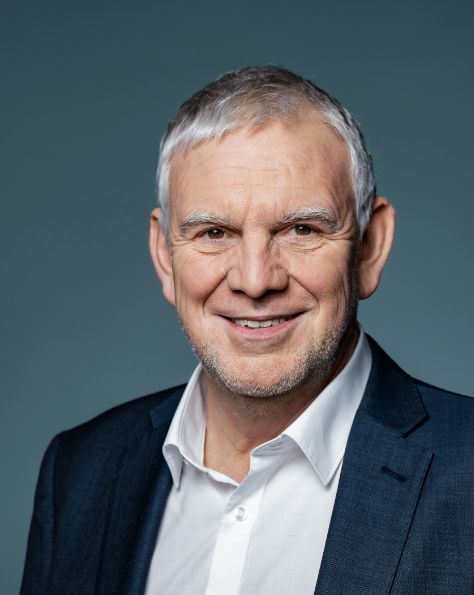Message from the Chair of the Supervisory Board
Dear readers,
As this report is published, we have reached the half-way mark in the time frame for achieving the 2030 Agenda for Sustainable Development. In 2015, the United Nations agreed on 17 Sustainable Development Goals for a better and fairer world. In the same year, most states signed the Paris Agreement on climate change, undertaking to keep the rise in global temperatures to well below 2 degrees Celsius, and ideally to no more than 1.5 degrees Celsius, as compared with pre-industrial temperature levels.
Eight years on, the interim results are not looking good. The global community is far from attaining most of the SDGs. Global crises like the COVID-19 pandemic and the worsening impacts of climate change are wiping out many development achievements. Russia’s war against Ukraine provides a stark illustration of the destructive consequences of blindly pursuing one-sided policies, with scant regard for international law and a rules-based international order. This war is dramatic for the Ukrainian people, and the repercussions can be felt around the globe. Because of the danger it poses to food security, countries in the Global South are being hit especially hard.

© BPA / Steffen Kugler
»Inclusive and resilient societies that are fit for the future are key to sustainable development.«
Jochen Flasbarth,
Chair of the GIZ Supervisory Board, State Secretary in the German Federal Ministry for Economic Cooperation and Development (BMZ)
Shape change, pool forces
The German Federal Ministry for Economic Cooperation and Development (BMZ) has therefore focused its work on four priority areas. In cooperation with our partner countries, civil society and multilateral institutions, we are concentrating in particular on realising global health and the rights that this entails, driving down poverty, hunger and inequality effectively, ensuring a socially equitable transition to a low-carbon economy, and implementing feminist development policy.
Trusting partnerships and new alliances are every bit as indispensable as better collaboration between bilateral and multilateral actors. The Global Gateway initiative of the European Union (EU) is exemplary in the way it sets out to achieve this. With private sector partners in developing countries and emerging economies, the EU and its member states, as Team Europe, invest in high-quality, sustainable infrastructure projects that mirror our values and ambitions, and comply with the most rigorous social and environmental standards.
Leave no one behind, strengthen resilience
Inclusive and resilient societies that are fit for the future are key to sustainable development. One major building block is the establishment and development of social protection systems. Societies with stable systems of this sort are better equipped to face the multiple crises of our times. The fact that around half of the world’s population still has no access to social protection is therefore an issue that must be rectified as a matter of urgency. We also need to align social protection approaches more with the increasingly urgent questions of climate change, including in the context of the Global Shield against Climate Risks established by BMZ and the V20 (the 20 nations most vulnerable to climate change). The transition to climate neutrality must be socially fair and equitable – in other words a ‘just transition’ that creates decent, low-carbon jobs and strengthens social protection as it rolls out the use of clean and safe energy. This is why the German Government works with other countries under the aegis of the G7 to support plurilateral Just Energy Transition Partnerships (with countries including Indonesia, South Africa and Viet Nam). It is also driving bilateral climate and development partnerships with Pakistan, Serbia, Rwanda, India, Peru and Kenya.
Equitable societies are more stable, more resilient to crises and more economically effective. Our new vision of feminist development policy means acting as pioneers to achieve equal opportunities for all people, overcome discriminatory power structures and shape human rights-based policies for all. The 3Rs (equal representation, stronger rights and equal access to resources) are pivotal to efforts to address the structural root causes of inequality.
Last year, GIZ again proved that its expertise and advisory services, in conjunction with its networks in our partner countries, make a tangible and sustainable difference for people on the ground. For this, my warmest thanks go to all GIZ staff. Let us continue together to drive forward the objectives of the 2030 Agenda and shape this new era, this Zeitenwende!
Best regards,

Chair of the GIZ Supervisory Board
State Secretary in the German Federal Ministry for
Economic Cooperation and Development (BMZ)